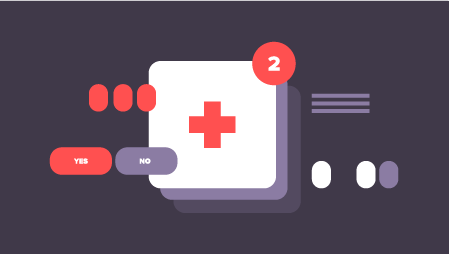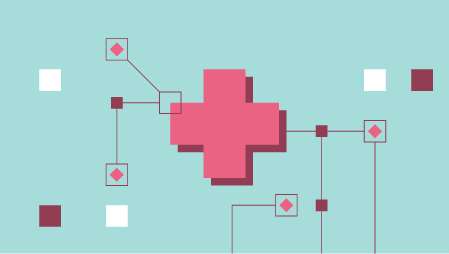AI in healthcare is no longer in the testing phase, there are plenty of existing applications. But, there are also considerable privacy implications that must be addressed
Before AI can truly transform healthcare, privacy and trust issues must be solved.
There is no doubt that AI is beginning to impact the healthcare industry. There is also no doubt that this impact will accelerate at an unprecedented rate.
“It is no longer stuck in the laboratory, but now being used in real-life [use cases] across the healthcare industry,” confirms Ben Lorica, chief data scientist at O’Reilly Media.
Dr Claire Novorol, co-founder and chief medical officer of Ada Health, agrees and says that “we are seeing real demand for AI in healthcare, often driven by patients and end users themselves.”
"How AI is revolutionising healthcare: 10 use cases of artificial intelligence in healthcare"
AI in healthcare: why is it important?
The introduction of AI into healthcare is important for several reasons. The main one, though? Scale. “With the NHS potentially losing up to 350,000 staff by 2030, using AI will be the only way to scale services to match the mounting demand that is hitting the UK with a shrinking workforce,” explains Lorica.
The impact of AI in healthcare won’t only be felt in the NHS. Instead, the technology (combined with other solutions, like remote healthcare) will have a wide range of applications in everything from personal medicine to research, diagnosis and logistics.
The impact of AI in healthcare won’t only be felt in the NHS. Instead, the technology (combined with other solutions, like remote healthcare) will have a wide range of applications in everything from personal medicine to research, diagnosis and logistics.
But, despite a clear desire to integrate AI, it must be done correctly. And before it can effectively disrupt the sector, Lorica suggests that “various organisational and cultural changes need to be implemented.
“Importantly, doctors and patients need to develop a culture that allows AI to participate alongside normal practices,” he says.
There is patient demand for AI in healthcare
Since launching in 2016, Ada Health’s consumer app has completed over 12 million assessments and has over 7 million users worldwide. This, according to Novorol, “is a great sign that patients are keen to use these technologies, which they see as a really valuable way to get high quality information and advice on their health, either in place of or before they consult a doctor. We are also seeing increased interest from healthcare providers, who recognise the role that AI can play in making healthcare more accessible and efficient at a time when health systems globally are struggling to cope with a shortage of trained healthcare workers.”Patient confidentiality
Before AI can truly transform the healthcare sector, the elephant in the room needs to be addressed: patient confidentiality or privacy.
“The NHS holds personal information about almost every person living in the country, which means preserving privacy, collecting and cleaning data and data sharing [the key to AI success] is paramount,” explains Lorica.
“So, the issue of privacy is extremely pertinent in AI’s adoption. Patients need to be assured that their privacy won’t be abused when giving their medical histories to a computer, instead of traditionally hand written records,” he continues.
"What’s the biggest barrier to AI adoption in healthcare?"
Novorol shares the same view and expresses that ensuring trust is the main challenge an AI-led healthcare sector must overcome in order to fulfil its potential.
She says: “Clinicians, administrators and regulators are rightly risk averse when it comes to implementing new technologies and we will only start to see AI services deployed at scale within healthcare when the industry has been able to demonstrate that these technologies are safe, reliable and trustworthy. The best way to do this is to develop appropriate benchmarking and evaluation standards for AI-based health technologies. This will require a collaborative effort between tech companies, policymakers and doctors — it is no easy feat but getting this right will be the key to unlocking the next phase of AI adoption within healthcare.”
“Medical culture has begun to change, but the change is by no means complete. AI developers need to tackle the issues both doctors and patients will have with the adoption of AI and build the right tools to facilitate the changing medical landscape” — Lorica
Everything begins with data
CTOs of healthcare providers and indeed, the numerous hospitals that make up the UK’s NHS, should not forget that everything begins with data.
Lorica advises that for AI to succeed, every CTO should “build the necessary foundational components and technologies for data acquisition, integration, storage, orchestration, lineage, governance, etcetera. That means a CTO will need to make the case for investing in the needed data infrastructure.
“CTO’s should work with users and domain experts to set realistic expectations, particularly when it pertains to what a proposed AI system can do. For example, just because you have large volumes of data doesn’t mean you are all set. This data may need to have proper labels, or it might be bias and not representative of the population you are serving.”




